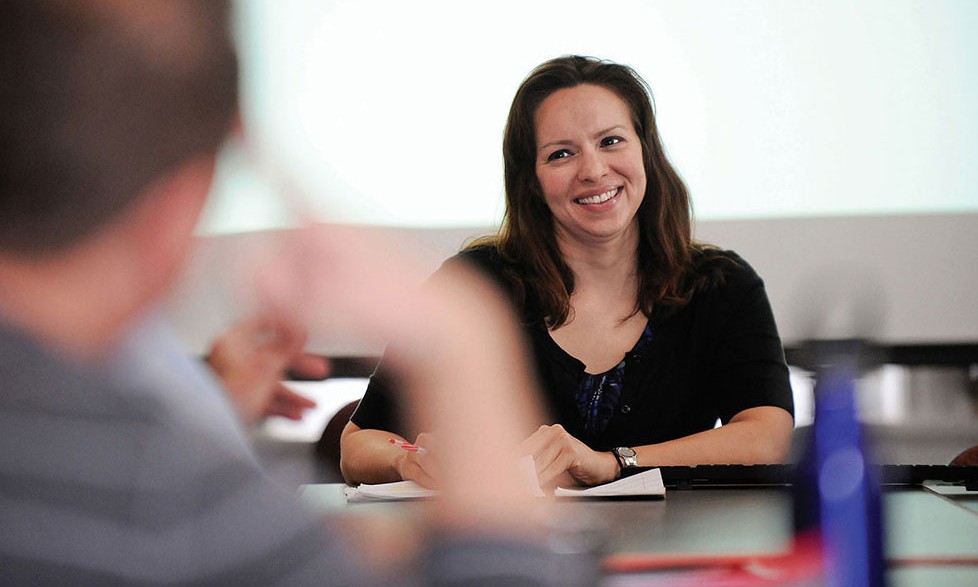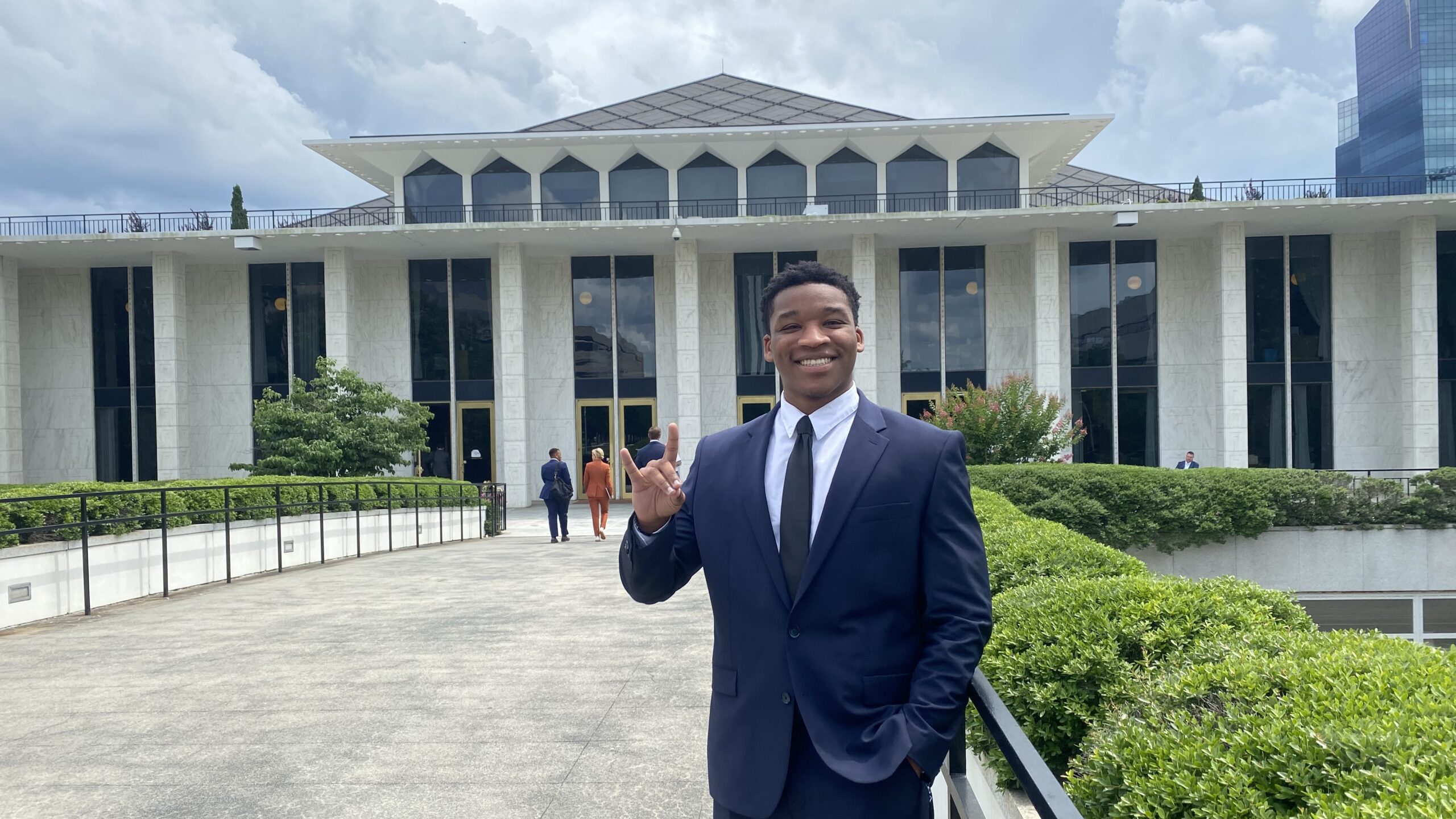Where Technology and Intelligence Meet the Social Sciences

Advancements in science and technology generate social, ethical and political issues. Programs in the College of Humanities and Social Sciences are teaching students how to navigate these changing waters as they strive to make the world a smarter — and safer — place.
Top headlines in newspapers around the world feature stories about the effects of science and technology on our physical, cultural and political climates. From nuclear energy to cellphone surveillance, these complex, hotly debated matters present a host of thorny implications at all levels of society.
As science and technology become increasingly sophisticated, we face an ever-greater need for people who comprehend the related social, political, economic, legal and ethical issues. “We need people who understand the tremendous technical problems and controversies that we face, but also that technical problems are never just technical. They have important social dimensions as well,” explains Kathleen Vogel, associate professor of political science and head of the college’s Science, Technology and Society (STS) program. Vogel, a noted scholar in the areas of bioweapons, intelligence, technology and security, joined the college in the fall of 2014.
The 25-year-old STS program, housed within the college’s Interdisciplinary Studies program, teaches students to think about how science and technology shape society and vice versa. For a university such as NC State, which produces many engineers and scientists, Vogel believes it is critical to help students understand the bigger picture of the work they are doing. “Engineers are building all kinds of technologies that have societal implications. We want them to identify and recognize those issues and be prepared to respond to them,” Vogel says.
Training the next cohort of intelligence experts
An initiative in the college’s School of Public and International Affairs addresses the role social science plays in national security and the intelligence industry. Vogel and fellow political science professor William Boettcher are co-leaders on a five-year, $1.86 million grant to launch an Intelligence Community Center for Academic Excellence (IC-CAE), a program run by the Defense Intelligence Agency. The grant, shared with the University of North Carolina at Chapel Hill, Duke University and North Carolina Central University, is intended to teach students how to assess today’s changing intelligence and security challenges while also teaching them more about this critical, but often poorly understood, profession.
“There is a real need for a curriculum in intelligence studies to create a pipeline of students wanting to pursue jobs in this industry,” says Boettcher, an expert in foreign policy, national security and nuclear nonproliferation. “In the past, people with careers in the intelligence or nuclear nonproliferation communities, for example, had pretty irregular paths to the positions they held. They might have started with a technical background, gone into the military, held a state government job and then finally ended up somewhere like the National Security Agency. It’s important to have a diverse group of qualified people ready to take these jobs that are critically important in terms of our national security. This grant will help us educate the next cohort of intelligence experts.”
Boettcher expects to see interest from students studying political science, history and public affairs as well as those with backgrounds in science and engineering. The program will allow the college to offer courses on topics including bioweapons, intelligence, nuclear nonproliferation and “spy vs. spy” — an intelligence history of the Cold War.
“I’ll be teaching Science, Technology and International Security,” Vogel says, “where we’ll talk about things like the Ebola outbreak in west Africa and how various policy officials named it a national security issue — and why we need to worry domestically about something happening in another country. There are of course technical aspects, but there are also larger factors that shape how something like that becomes a security issue.”
Political science assistant professor Robert Reardon, who has done extensive research on the effectiveness of sanctions, military force and diplomacy as policy tools to prevent the spread of nuclear weapons, plans to teach a course on U.S. intelligence and national security policy.
“Intelligence plays a major role in nearly every issue of national security policy, including the identification of threats, the analysis of intentions and capabilities of other states and nonstate actors, and the identification of military targets during conflicts,” Reardon explains. “Because the role of intelligence is far more visible when intelligence fails than when it succeeds, we tend to take it for granted and underestimate its importance. It is also understudied and undertaught in our universities. There is a large, unfilled demand for training the next generation of intelligence experts, particularly in intelligence analysis on issues at the nexus of science and engineering on the one hand and politics on the other. NC State is uniquely positioned to help fill that gap.”
In addition to the new courses, the IC-CAE grant will create a specialization in intelligence studies through the School of Public and International Affairs’ Master of International Studies program, as well as an undergraduate minor in intelligence studies in the Department of Political Science. Funds will be available to take students on learning trips to places like Oak Ridge National Laboratory, the Central Intelligence Agency, the National Security Agency and the Pentagon to give them a chance to network with people in the industry and learn more about careers in these fields.
Preparing informed citizens
“We obviously hope these courses and field trips will help students consider a career in the field of intelligence and security, but even more than that, we want to create better-informed citizens,” Vogel says. “Also, there are always going to be issues we must understand in science and technology because they are an integral part of our lives. Society must constantly address how to incorporate, adopt or reject technologies, and these decisions are often hotly debated.
“From fracking to nuclear weaponry to reproductive medical techniques, we need smart people who can address the technical issues as well as the larger set of issues shaping the controversy, and who can intervene and find constructive ways to manage and organize the conversation,” she says. “That’s what we want out of our academic programs, and grants like the IC-CAE help fund ways to teach it.”
— Caroline Barnhill
This article first appeared in the College of Humanities and Social Sciences magazine, Accolades.


